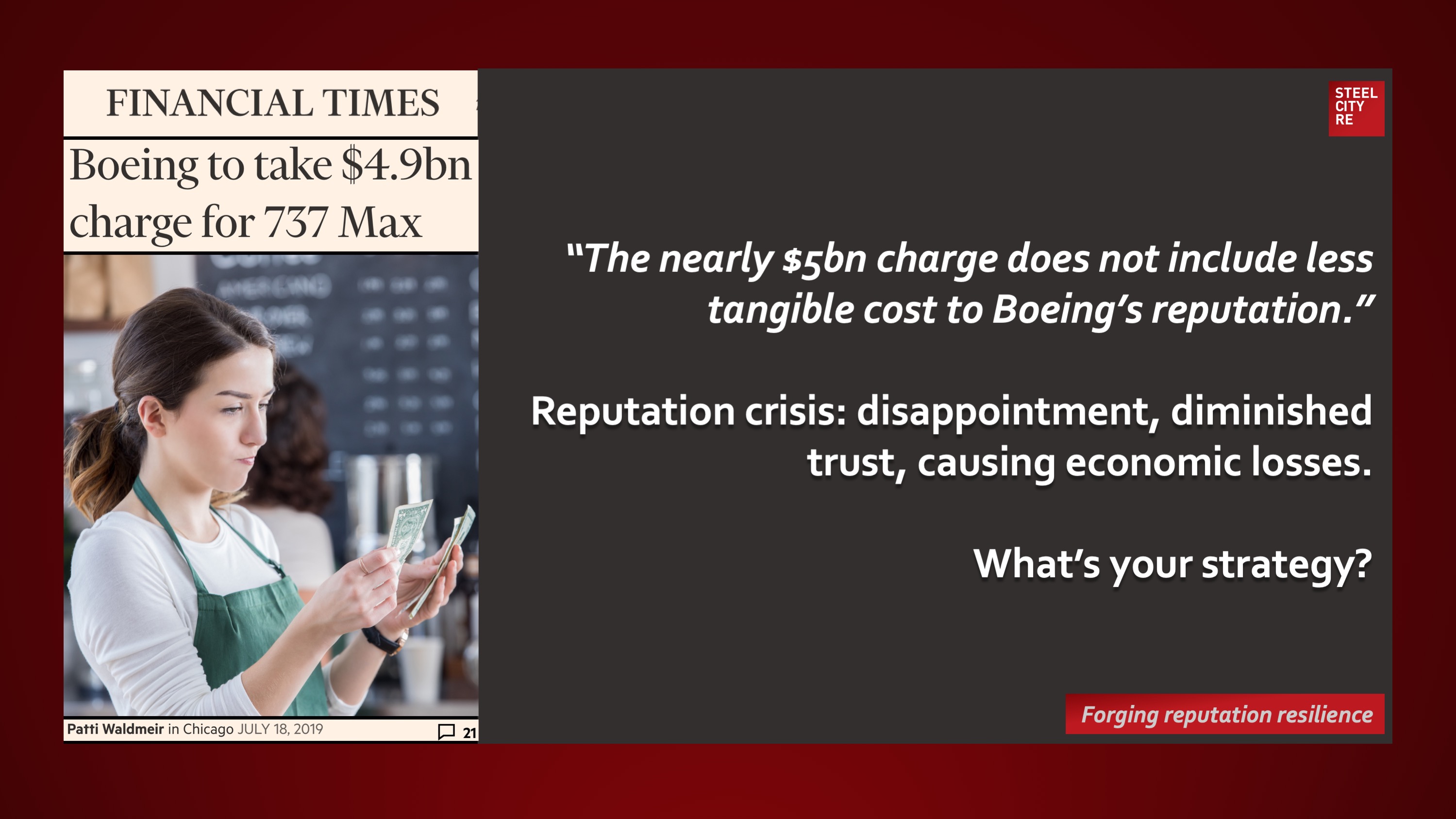“Boeing will take a $4.9bn after-tax charge in the second quarter related to the grounding of the 737 Max, the manufacturer’s first estimate of the cost of compensating airlines for schedule disruptions and delays in aircraft deliveries. The charge will result in a $5.6bn cut in revenues and pre-tax earnings for the second quarter…The size of the charge underlines the magnitude of the crisis Boeing is facing.”
Financial Times
July 20, 2019
“The nearly $5bn charge does not include less tangible cost to Boeing’s reputation”
Click on READ MORE for full article. (Pay Wall).
Reputation crisis: disappointment, diminished trust, causing economic losses.
For a broader view of reputation risk, discover additional articles by Steel City Re here, mentions of Steel City Re here, and comments on newsworthy topics by Steel City Re here. To read an abstracted summary of reputation risk, see below.
Reputations are valuable strategic intangible assets. Threats to these assets⏤ enterprise reputation risks, often mislabeled “brand risks” ⏤ need to be managed, and management needs to be overseen through reputation risk governance lest reputational damage or reputational harm result in long-tailed go-forward losses in economic value and/or political power. Because these intangible risks arise from the interplay of stakeholder expectation, experiences, and media amplification, parametric insurances for intangible asset risks, for reputational value, for reputational harm, and for reputation assurance help mitigate risk by telling a simple, convincing and completely credible story of quality reputation governance to stakeholders. This story telling effect is the expressive power of insurance complementing insurance’s better known instrumental power of indemnification.
Risk management, risk financing in insurance captives, and risk transfer through reputation insurances comprise the constituent elements of a comprehensive solution.
What’s your strategy?

